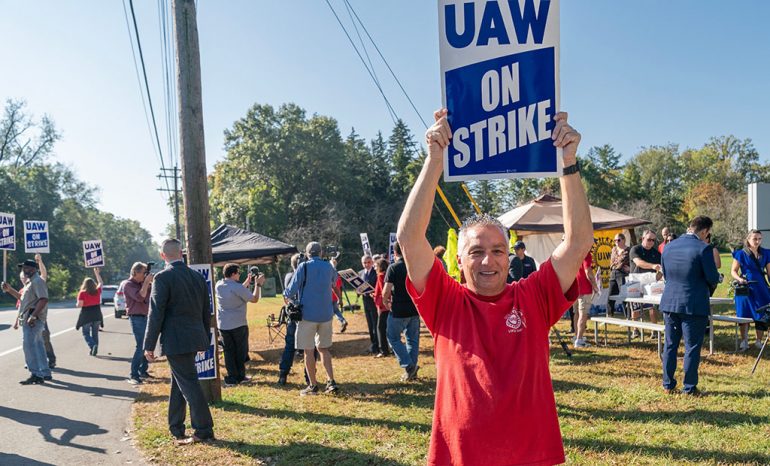
Workers at the ZF Alabama plant, affiliated with the United Auto Workers (UAW) union, have put an end to their nearly month-long strike, marking a significant development in the ongoing labor disputes within the automotive industry. The strike, initiated by 190 UAW members, began due to demands for improved wages and enhanced healthcare benefits, highlighting the ongoing tension between labor and management in this sector.
This strike took place at the ZF plant, a supplier to Mercedes-Benz, which produces front axles utilized in the nearby Mercedes-Benz facility in Alabama. Last month, ZF had announced its intention to continue plant operations while negotiations with the UAW persisted. The union, however, announced that the strike had concluded following the ratification of a tentative agreement, a breakthrough after workers had previously rejected an earlier contract proposal. A spokesperson from ZF expressed their satisfaction with the resolution, emphasizing the company’s commitment to delivering top-notch technology to its customers from the Tuscaloosa facility.
In stark contrast to the resolution at ZF, labor disputes continue to roil the Detroit Three automakers—Ford Motor, General Motors, and Stellantis (formerly Fiat Chrysler). Approximately 34,000 UAW members remain on strike across these companies, exacerbating the industry’s challenges. UAW President Shawn Fain engaged in negotiations with General Motors and Stellantis on Thursday, as attempts to reach an agreement with the automakers continue.
Stellantis, in particular, has had to grapple with the fallout from the labor disputes. On Friday, the company announced that it would temporarily lay off an additional 100 workers at a machining plant in Ohio, increasing the total number of employees on furlough to 1,520. These ongoing disruptions have had far-reaching effects, impacting not only the workforce but also the overall production capacity and supply chains.
The UAW’s labor actions have had a cascading impact across the industry. On October 11, the UAW expanded its strike to include Ford’s Kentucky Truck Plant, the company’s largest facility globally. Ford, in response, announced on Wednesday that it was temporarily laying off an additional 150 workers, raising the total number of furloughed workers to 2,730 since the strike’s commencement. General Motors has also felt the effects, with over 2,300 workers on furlough.
What is noteworthy is the UAW’s shift in strategy. Previously, they had typically announced new strike actions on Fridays, providing some anticipation and preparation time. However, UAW President Shawn Fain recently announced that members would now initiate strikes at additional facilities without prior warning. This change in approach reflects the escalating nature of the labor disputes and the determination of the union to press its demands with greater urgency.
The strike at the ZF Alabama plant may have concluded with a tentative agreement, but the wider landscape of labor disputes in the automotive industry remains fraught with uncertainty, as negotiations with the Detroit Three automakers continue to present challenges for all parties involved.
Source: Reuters

Mike Floyd is a finance executive by trade and a car enthusiast at heart. As a CFO with a keen eye for detail and strategy, Mike brings his analytical mindset to the automotive world, uncovering fresh insights and unique perspectives that go beyond the surface. His passion for cars—especially his favorite, the Porsche 911, fuels his contributions to Automotive Addicts, where he blends a love for performance and design with his professional precision. Whether he’s breaking down industry trends or spotlighting emerging innovations, Mike helps keep the site both sharp and forward-thinking.